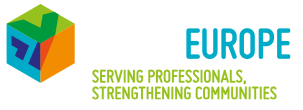By Rabbi David Levin Kruss
Yesod Europe’s Jewish Learning Director
Walk into a Jewish organization and you will often find professionals questioning, arguing, and being expressive. These qualities stem from both historic experience and also from our texts and how we study them.
As far back as the Torah, we have stories of arguments with God and leaders. The bible even has entire books that contradict each other. And in the Talmud, stories and law rub shoulders with each other and sometimes challenge each other.
In Jewish texts, important material is surrounded by commentary. The page comes alive as the commentators become active participants in the discussion, challenging the learner with their opinions.
Many Jews learned texts in chavruta – two people pouring over a book and discussing its meaning. In chavruta people are loud and expected to speak constantly. This, in turn, affects the way Jews speak to each other, even those not studying texts.
But not all is connected to text. There are historic reasons too. People who are marginalized or persecuted and who often had to fight for their survival cannot afford to be reserved or polite to each other. This encouraged directness and honesty.
As a professional, when one runs or participates in a meeting, it is helpful to recognize these characteristics and also to be sensitive to people (Jewish or not) who have different ways of communicating.
Bibliography
Conversation and Debate by My Jewish Learning
Interrupters: Linguist Says It’s the Jewish Way by J. Correspondent
